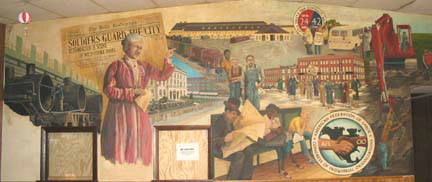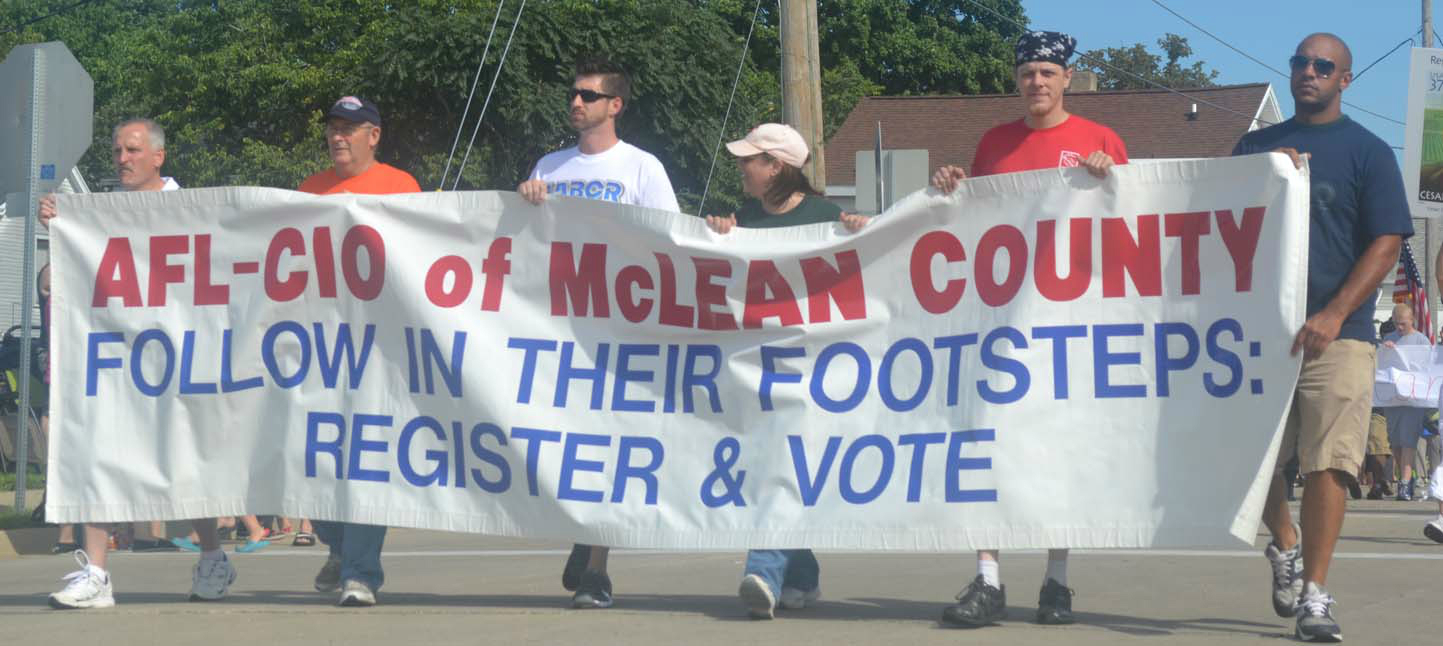|
Indiana Gov. Mike Pence, Donald Trump’s choice for his running mate on the Republican ticket, has a long anti-labor record, from denouncing minimum-wage increases to putting his own money into a campaign to cut construction workers’ pay.
“He’s just an anti-worker candidate,” says Indiana AFL-CIO President Brett Voorhies. Union officials in the state cite his defense of its ban on the union shop, the repeal of the “Common Construction Wage” for workers on public projects, and his channeling education funds away from public schools.
Pence’s signing a bill last year that let businesses discriminate against gays and lesbians on “religious freedom” grounds is also a labor issue, Voorhies adds. And when the Carrier Corporation announced earlier this year that it was moving its air-conditioner factory from Indianapolis to Mexico, “the governor did nothing to save those jobs.”
Meanwhile, the National Right to Work Committee praised Pence in 2014 as “one of the biggest supporters of Right To Work freedom.”
Pence, 57, was elected governor in 2012 after serving 12 years in Congress. He’s one of the five industrial-Midwest governors who are fiercely anti-labor, along with Scott Walker of Wisconsin, Rick Snyder of Michigan, Bruce Rauner of Illinois, and John Kasich of Ohio. Indiana passed its “right to work” law prohibiting the union shop in 2011, before he took office, but Pence defended it when the United Steelworkers and International Union of Operating Engineers Local 150 challenged the law in court.
When the state Supreme Court upheld the law in November 2014—on the seemingly illogical grounds that it did not force unions to represent nonmembers for nothing, because it was federal law, not state law, that requires them to represent all workers in a bargaining unit—Pence called it “a victory for the freedom of every Hoosier in the workplace.” He says he strongly supports the law because “I don't think anyone should be required to join a union as a condition of their employment.”
Pence has also long opposed raising the minimum wage. In Congress in 2007, he voted against increasing it from $5.15 an hour—where it had been stuck for 10 years—to $7.25. He blamed the minimum wage for high unemployment among black teenagers and said raising it “violates fundamental free-market economics.”
As governor, he expanded a 2011 state law that prohibited local governments from setting higher minimum wages, so that it also banned them from requiring benefits, such as paid sick leave, that are not mandated by state or federal law. The Republican-controlled legislature blocked bills to raise the minimum to $8.25 in 2013 and to $10.10 in 2015.
Pence “championed” repealing the state’s prevailing-wage laws, says Ed Maher, IUOE Local 150’s communications director. “He made that personal, putting his own money into ads.” His campaign spent $250,000 on those ads, with Pence saying the law “is outdated and costs Hoosier taxpayers millions in additional building costs.”
“Wages on public projects should be set by the marketplace and not by government bureaucracy,” he said when he signed the bill in May 2015.
State Port Commissioner David Fagan resigned a month before in protest. “Indiana is ranked 38th in per capita income, and the governor’s solution is to cut wages on good middle-class jobs,” he wrote in his resignation letter. “What sense does that make?”
On education, Pence’s agenda has been a combination of privatization and “test and punish,” says Indiana State Teachers Association President Teresa Meredith. When the state revised its ISTEP standardized tests, he refused to “pause accountability”—to hold off on denying raises to teachers whose students’ test scores hadn’t improved enough over the previous year. He relented when the results came in and showed scores significantly down, she says.
Indiana now has “the most expansive voucher program in the country,” Meredith says. Last year, the state lifted the $4,800 cap on the amount it will give parents to cover private-school tuition—and that money comes directly off the top of its education budget. “It’s hurting the funding that we need for our public schools, where 90% of our children go,” she adds.
Pence also wanted to give charter schools $1,500 more per student in state aid than regular public schools get, but that did not pass. Another unsuccessful bill, says state AFL-CIO spokesperson Haylee Brannon, would have undermined teachers’ collective bargaining, by letting schools pay teachers more if they could negotiate higher salaries on their own.
Donald Trump has made much of his opposition to trade agreements that enable jobs to be shipped off to low-wage nations. But Pence “voted for every free-trade agreement there was” when he was in Congress, says Voorhies.
When Carrier announced it was closing the Indianapolis plant, says Brannon, Pence met with management, but at first refused to meet with United Steelworkers Local 1999, the union representing the workers.
“The only reason he met with the union was that they were in the hallways of his office,” Voorhies says.
Local 1999 offered $25 million in concessions, Brannon says, but Carrier said it would only keep the plant open if they worked for $5 an hour with no benefits. They had been making $14 to $26. Workers in Carrier’s Monterrey, Mexico plant get $3.
“Mike Pence has been no friend to union members and working- and middle-class Hoosiers,” says Ed Maher. He sees Pence as using the governorship as a stepping stone to higher office, trying to win the support of the Koch brothers and other far-right funders by adopting policies “right out of the national antiunion playbook.”
Most of the jobs the state has added during Pence’s term, says Voorhies, are low-paying service jobs, such as the two Amazon fulfillment centers outside Indianapolis.
by Steve Wishnia, New York Labor Press
|



